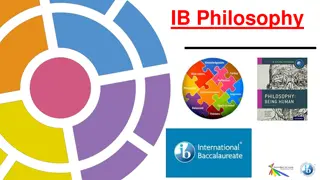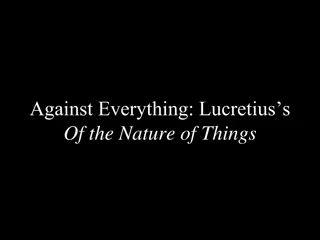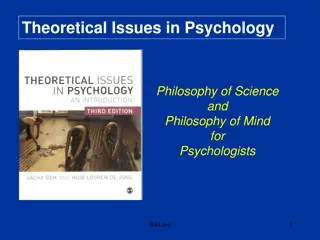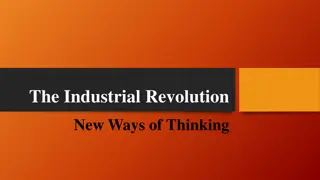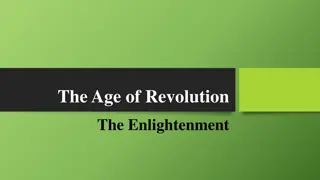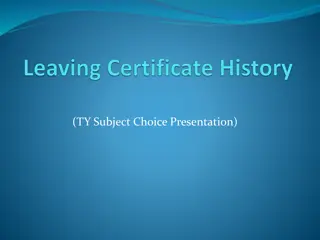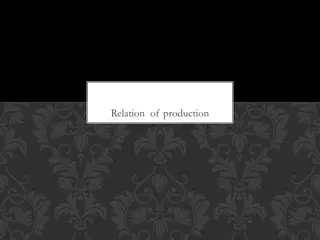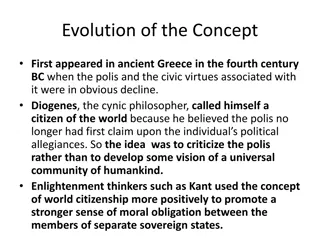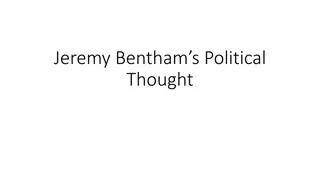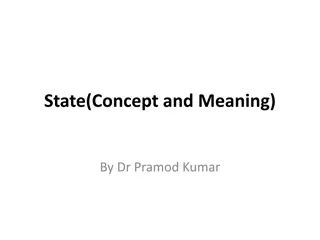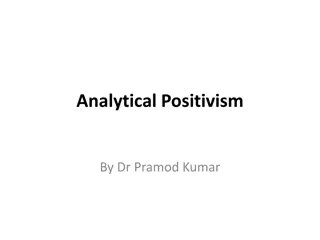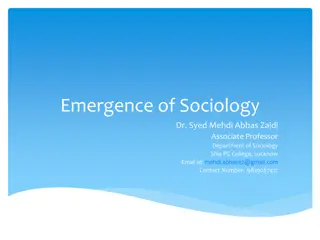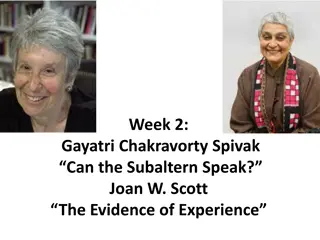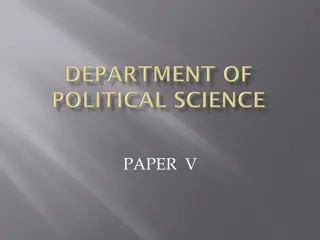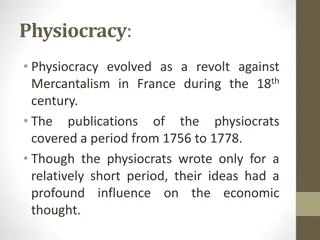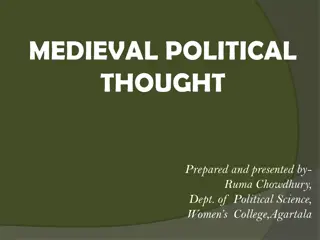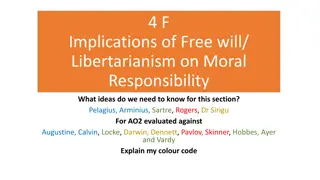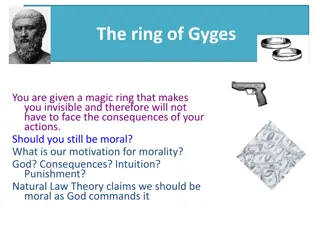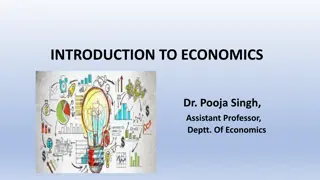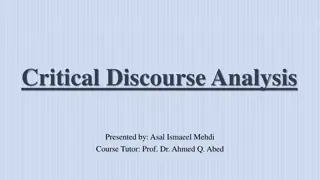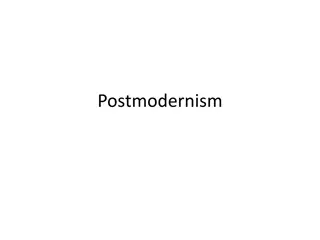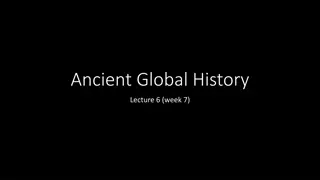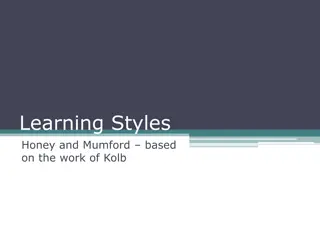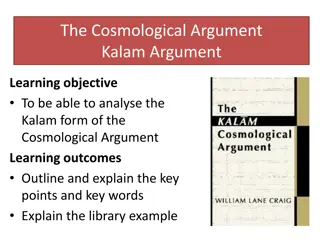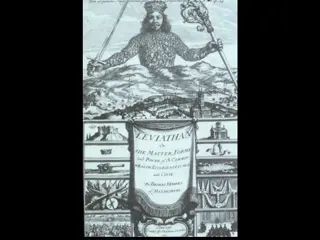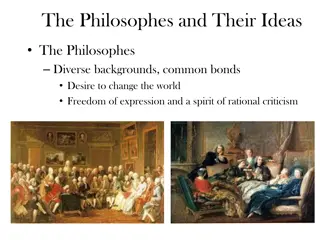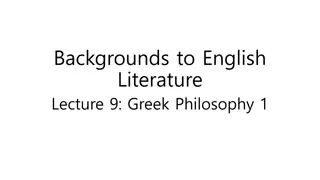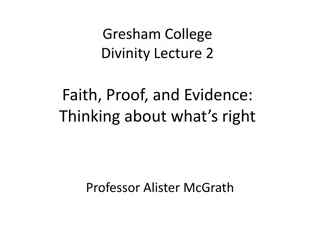Class Group Mastery Adapting to 21st Century Learning
The traditional image of a classroom \u2013 rows of desks facing a teacher dispensing knowledge \u2013 is increasingly incompatible with the realities of modern learning. The 21st century demands critical thinkers, collaborators, and innovators, requiring a fundamental shift in how we approach educa
3 views • 3 slides
Your Guide to Getting a German Study Visa in Hyderabad
Germany, the land of Mar, Nietzsche, and various thinkers and philosophers. The land of eye-catching Volkswagen, ravishing automobiles of Audi, Porsche, Mercedes among multiple others. A land blessed with diverse culture and history. Germany is one of the top sought countries for undergraduate and p
0 views • 3 slides
Principles of Education: Understanding the Meaning and Concepts
Education plays a vital role in shaping individuals and societies, fostering confidence, hope, and positive change. It encompasses a broad spectrum from imparting knowledge to personal growth and lifelong development. The etymological roots of education reflect concepts of discipline and knowledge.
5 views • 6 slides
Exploring the World of Sociology through Philosophy
This philosophy course delves into engaging with influential thinkers, encouraging students to actively participate in philosophical activities. Covering topics on being human, ethics, religion, philosophical texts, and contemporary issues, it also emphasizes internal assessments and stimulating int
2 views • 15 slides
Unveiling Truth: Insights from Lucretius's "Of the Nature of Things
Delve into the profound philosophical musings of Lucretius, challenging superstition, fear, and fate while advocating for knowledge, pleasure, and free will. Explore the timeless wisdom of ancient Greek thinkers who dared to defy conventional beliefs and seek truth in a universe filled with endless
1 views • 17 slides
Theoretical Issues in Psychology: Philosophy of Science and Mind
Exploring the philosophy of science in psychology, this content delves into key concepts such as positivism, logical positivism, the Vienna Circle, and the scientific process according to positivists. It discusses influential thinkers like Wittgenstein, Popper, Kuhn, and Feyerabend, shedding light o
2 views • 35 slides
The Industrial Revolution and Laissez-Faire Economics: Perspectives on Population and Poverty
Industrial revolution led to new ways of thinking, including population theories by Thomas Malthus and economic concepts like laissez-faire advocated by thinkers such as Adam Smith and David Ricardo. Malthus and Ricardo held bleak views on poverty and population growth, suggesting limited government
1 views • 17 slides
Enlightenment Thinkers and Their Ideals
The Age of Revolution was marked by influential Enlightenment thinkers such as Thomas Hobbes, John Locke, Montesquieu, and Jean-Jacques Rousseau. These philosophers explored human nature, government, and society, shaping modern political thought. Hobbes emphasized a pessimistic view, advocating for
2 views • 9 slides
Exploring the Benefits of Studying History for Future Success
Understanding the impact of studying history on your future career and personal development. History offers insights into past events, enhances critical thinking skills, and fosters effective communication. Employers value history education for producing independent thinkers and logical communicator
0 views • 19 slides
Understanding Relations of Production in Society
People's need for survival drives them to engage in material production, forming the foundation of human existence. According to thinkers like Karl Marx, the interplay between economic production and social relationships shapes society's structure. The forces of production encompass technological ad
1 views • 7 slides
Evolution of Cosmopolitan Citizenship: From Ancient Greece to Modern Critiques
The concept of cosmopolitan citizenship has evolved from ancient Greece to modern times, with thinkers like Kant and global social movements reshaping its meaning. While some advocate for a universal sense of responsibility, critics question the feasibility and potential dangers of such projects. Mi
2 views • 14 slides
Jeremy Bentham's Impact on Political Thought and Utilitarianism
Jeremy Bentham, a notable figure in Anglo-American philosophy of law, was a key proponent of utilitarianism. He emphasized maximizing happiness for the greatest number of people, critiqued laws, and advocated for legal reforms. Bentham's works reflect the societal changes during his time, addressing
0 views • 13 slides
Understanding the Concept of the State by Dr. Pramod Kumar
The concept of the State is central to traditional political theory, with varying significance in modern political thought. It encompasses the idea of a community with legitimate authority over a territory. Various definitions by scholars like Sidgwick, Garner, and Laski highlight the key elements o
0 views • 17 slides
Overview of Analytical Positivism in Legal Theory
The Analytical Positivism school, also known as the Austinian school, emphasizes a sharp separation between law and morality. It views law as a command and emphasizes the importance of law as it is, rather than how it ought to be. This approach, championed by thinkers like John Austin and Jeremy Ben
0 views • 19 slides
The Emergence of Sociology: A Historical Overview
Sociology, derived from Latin and Greek roots, has evolved over centuries through various stages, influenced by social, economic, and political factors. Key thinkers like Plato, Aristotle, Hobbes, Locke, Rousseau, Montesquieu, Comte, Durkheim, and Marx have shaped the discipline. The Industrial Revo
1 views • 23 slides
Critical Perspectives on Postcolonialism and Structuralism in Spivak's Work
Gayatri Chakravorty Spivak is known for her critical engagement with postcolonial theory and deconstruction, challenging traditional Western perspectives. By drawing on thinkers like Derrida and Foucault, Spivak offers a unique lens to interrogate power dynamics, hegemony, and resistance. Her work r
0 views • 31 slides
Greek Political Thought: An Overview
Ancient Greek political thought differed from other ancient civilizations by focusing on the nature of the state and man as a political being. Greek thinkers examined various forms of government and emphasized the importance of education in shaping citizens. They considered the state essential for a
4 views • 15 slides
The Rise of Physiocracy in 18th Century France
Physiocracy emerged in 18th century France as a response to the shortcomings of Mercantilism, focusing on agricultural prosperity and natural economic principles. Led by prominent thinkers like Francois Quesnay and Turgot, physiocrats challenged the prevailing economic system, influenced Adam Smith,
0 views • 9 slides
Medieval Political Thought: Key Thinkers and Concepts
Explore the medieval political thought highlighting prominent thinkers like St. Augustine, St. Thomas Aquinas, and Marsilius of Padua. The period was characterized by universalism, the absence of organized states, and a blend of politics, economics, and religion. Discover the parallelism between Pla
3 views • 6 slides
Evolution of Liberal Citizenship Theory
The liberal theory of citizenship emphasizes the essential components of right, responsibility, and identity within a political community. It contrasts with pre-capitalist societies by offering a weak sense of membership and reduced citizen obligations. The addition of social rights has brought an e
0 views • 15 slides
Analytic Versus Continental Philosophy in the 20th Century: A Comparative Overview
In 20th-century philosophy, the divide between Analytic and Continental schools deepened but has seen recent attempts at reconciliation. Analytic philosophy emphasizes logic, language, and epistemology, requiring technical expertise, while Continental philosophy rejects metaphysical speculation and
0 views • 15 slides
Philosophical Reflections on Knowledge and Reality
The content delves into philosophical musings from renowned thinkers like Descartes, Leibniz, and Spinoza, exploring concepts such as innate ideas, geometrical truths, and the nature of philosophy itself. Through their writings, we reflect on the origins of knowledge, the interplay of sensory experi
1 views • 22 slides
Moral Responsibility and Free Will Implications in a Contemporary Context
This text delves into the implications of free will and libertarianism on moral responsibility, examining the ideas of various philosophers and thinkers such as Pelagius, Arminius, Sartre, and more. It explores the concepts of moral agency, determinism, normative ethics, religious beliefs, and the c
5 views • 12 slides
Understanding Natural Law Theory: Morality and Divine Commands
Natural Law Theory, influenced by thinkers like St. Thomas Aquinas and Aristotle, posits that morality is derived from rational thought and divine commands. The theory emphasizes the importance of following moral absolutes to establish a right relationship with God and achieve eternal life. By study
1 views • 36 slides
Criticisms and Defenses of Verification and Falsification Principles
Explore the criticisms and defenses of the Verification and Falsification Principles in religious language. Understand how believers defend the use of religious language and analyze challenges posed to the Verification Principle by notable thinkers like Swinburne, Hare, and Mitchell. Delve into resp
2 views • 15 slides
Understanding Economics: Concepts and Principles Explained
Economics, derived from the Greek word Oikonomia, focuses on managing resources to achieve maximum output and satisfaction. It encompasses the study of wealth, choice-making, and dynamic growth. The discipline emphasizes the role of factors of production - land, labor, and capital - in generating in
2 views • 15 slides
Enhancing Academic Proficiency and Workplace Competencies in Secondary School Learners through Consumer Studies Assessment
In South Africa, the National Senior Certificate (NSC) and the Independent Examinations Board (IEB) play crucial roles in assessing learners' academic proficiency and workplace competencies. Consumer Studies, as an elective subject, is integral in developing responsible consumer behavior and equippi
1 views • 23 slides
Influential Philosophers Through Time
Influential philosophers from different periods in history, such as Confucius from ancient China, Socrates and Plato from ancient Greece, Aristotle, Paul of Tarsus, René Descartes, and John Locke. These thinkers contributed groundbreaking ideas to philosophy and society, shaping the way we understa
0 views • 10 slides
Evolution of Division of Labor in Humans and Social Insects
Evolutionary advantages of cooperation and specialization led to a developed system of social cooperation and division of labor in humans and social insects. Despite vast differences, these species have conquered the earth due to common characteristics. The puzzle lies in why only a few species evol
0 views • 23 slides
Introduction to Critical Discourse Analysis (CDA)
Critical Discourse Analysis (CDA) is the study of language use in social contexts, integrating social theories with discourse analysis methods. Originating in the 1970s as Critical Linguistics (CL), CDA evolved to focus on how language reflects and shapes social meaning. The relationship between CL
0 views • 32 slides
Exploring Postmodernism: Art, Literature, and Philosophy
Postmodernism challenges traditional beliefs about language, identity, and reality. It is characterized by skepticism, subjectivism, and a critical view of ideology in politics and economics. Key thinkers like Thomas Pynchon, Donald Barthelme, and Jean-François Lyotard have contributed to shaping t
0 views • 26 slides
The Axial Age: Pivotal Thinkers Across Ancient Civilizations
The Axial Age, coined by Karl Jaspers, refers to a period from the 8th to 3rd century BCE where pivotal thinkers emerged independently in Persia, India, China, Greece, and Rome, shaping the spiritual foundations of humanity. Jaspers, a German philosopher and psychiatrist, highlighted the importance
2 views • 21 slides
Understanding the Art of Rhetoric
Explore the diverse perspectives on the concept of rhetoric, ranging from Plato and Aristotle to modern thinkers like Henry Ward Beecher and Andrea Lunsford. Rhetoric is depicted as the art of persuasion, with various scholars defining it as enchanting the soul, discovering means of persuasion, or i
1 views • 13 slides
Understanding Learning Styles: Honey and Mumford Based on Kolb's Work
Explore the four learning styles proposed by Honey and Mumford, which are based on the work of Kolb. The four styles are Activists, Reflectors, Theorists, and Pragmatists. Each style is characterized by unique traits and preferences for learning methods. Activists thrive on new experiences and chall
0 views • 10 slides
Understanding the Kalam Argument in the Cosmological Debate
The Kalam Argument, a form of the Cosmological Argument, asserts that everything with existence has a cause, including the universe. Developed by thinkers like al-Kindi, al-Ghazali, and William Lane Craig, it aims to prove that God was the initial cause of the universe. This argument suggests that t
0 views • 17 slides
Excellence in Education: Cass Technical High School IB Program
Cass Technical High School is a nationally recognized school of excellence offering the prestigious International Baccalaureate program. Through rigorous academic standards and global connections, the IB program prepares students for success in the 21st century. The school's mission is to develop in
0 views • 7 slides
Insights into the Enlightenment Thinkers: Philosophers of Change
The Enlightenment era marked a shift towards reason and enlightenment, with thinkers like Locke, Hobbes, Montesquieu, Rousseau, and Voltaire advocating for progress, natural law, and individual rights. Each philosopher contributed unique ideas to reshape societal structures, challenging traditional
0 views • 18 slides
Enlightenment Thinkers and Their Impact on Society
Explore the ideas and influence of key Enlightenment thinkers such as Montesquieu, Condorcet, Voltaire, and John Locke. Discover their groundbreaking works and beliefs on freedom, governance, equality, and religious tolerance, which shaped the American and French revolutions and continue to resonate
0 views • 31 slides
Greek Philosophy: Origins and Influential Thinkers
Greek philosophy originated with the Pre-Socratics in the Ionian School around 600 BC, focusing on naturalistic explanations and cosmological theories. Thales, Anaximander, and Anaximenes were key figures, each proposing unique elemental theories. Pythagoras emphasized the mathematical nature of the
0 views • 19 slides
Perspectives on Faith and Evidence from Notable Thinkers
Explore diverse perspectives on faith, proof, and evidence from influential thinkers like C.S. Lewis, William James, Simone Weil, G.K. Chesterton, Richard Dawkins, and Charles Darwin. Reflect on how faith intersects with reason, evidence, and belief, shaping different worldviews and philosophical ap
0 views • 14 slides



